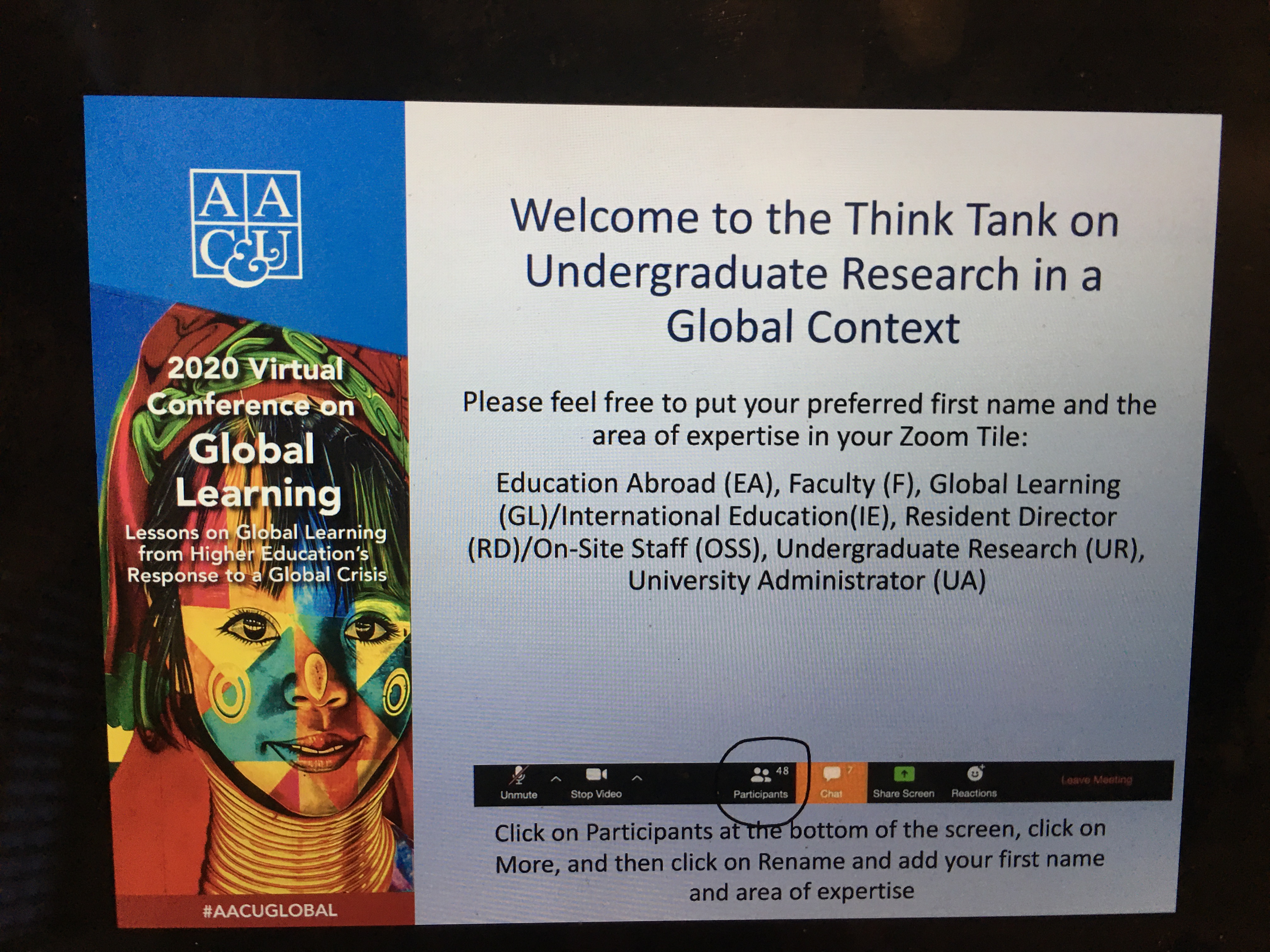The Oct. 6 event was co-facilitated by Maureen Vandermaas-Peeler, director of the Center for Research on Global Engagement and professor of psychology, and involved multiple Elon faculty members.
On Tuesday, Oct. 6, a virtual think tank on “Mentoring Undergraduate Research (UR) in Global Contexts” was co-facilitated by Maureen Vandermaas-Peeler, Director of the Center for Research on Global Engagement and Professor of Psychology at Elon University, Dawn Whitehead, Vice President of the Office of Global Citizenship for Campus, Community, and Careers at the Association of American Colleges and Universities, and Elizabeth Frohlich, Director for Programs and Resources at the Forum on Education Abroad.
 Thirty professionals who are actively engaged in the work of integrating mentored UR and diversity/global learning participated in the three-hour think tank. Four faculty from Elon co-facilitated two of three World Café breakout sessions. Associate Professor of Religious Studies Amy Allocco and Associate Professor of Anthropology Mussa Idris co-facilitated a session on “Local-global partnerships and UR mentoring practices during a pandemic.” Eric Hall and Caroline Ketcham, both professors of exercise science, co-facilitated “Salient practices for distance mentoring of UR.” The third breakout featured Eric Hartman and Nora Reynolds from Haverford College and The Community-Based Global Learning Collaborative, who talked about “Flipped classroom, open-access introductions to participatory methods across power differentials.”
Thirty professionals who are actively engaged in the work of integrating mentored UR and diversity/global learning participated in the three-hour think tank. Four faculty from Elon co-facilitated two of three World Café breakout sessions. Associate Professor of Religious Studies Amy Allocco and Associate Professor of Anthropology Mussa Idris co-facilitated a session on “Local-global partnerships and UR mentoring practices during a pandemic.” Eric Hall and Caroline Ketcham, both professors of exercise science, co-facilitated “Salient practices for distance mentoring of UR.” The third breakout featured Eric Hartman and Nora Reynolds from Haverford College and The Community-Based Global Learning Collaborative, who talked about “Flipped classroom, open-access introductions to participatory methods across power differentials.”
Also included among the 30 participants were Elon faculty members Matt Buckmaster, Jen Hamel and Paul Miller.
The think tank concluded with a session on building a collaboration and facilitating next steps facilitated by Kris Acheson-Clair of Purdue University and Jennifer Wiley of James Madison University. Acheson-Clair identified three particularly salient themes in the conversation: 1) Increasing access to UR opportunities in global contexts in our new virtual context; 2) Emphasizing intercultural/global outcomes of undergraduate global research with intentionality and accountability; and 3) Attending to key issues of power differentials, impact, and sustainability. Future actions by the group include collaborative research proposals, presentations, and publications, as well as building a hub of resources to share more broadly.



